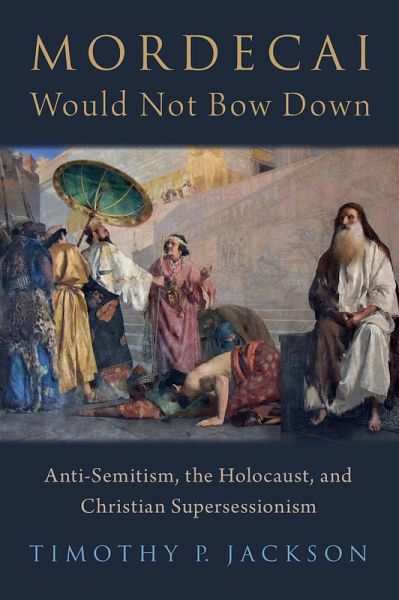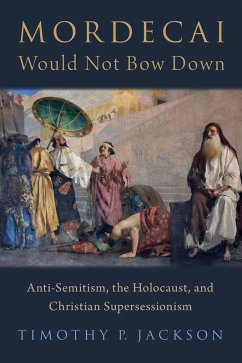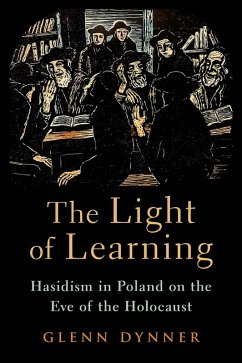
Mordecai Would Not Bow Down (eBook, PDF)
Anti-Semitism, the Holocaust, and Christian Supersessionism
Versandkostenfrei!
Sofort per Download lieferbar
30,95 €
inkl. MwSt.
Weitere Ausgaben:

PAYBACK Punkte
15 °P sammeln!
Never again! In the years following the Holocaust, the phrase came to signify a general determination never again to permit systemic anti-Semitism and genocidal violence. Yet anti-Semitism endures, and its underlying causes persist. The resilience of anti-Semitism casts the Holocaust not as inexplicable or singular, but as an event shaped by identifiable--and universal--human prejudices. Despite the intense attention focused on the Holocaust, we consistently misrepresent it. By describing it as a purely irrational phenomenon, we risk minimizing the threat that anti-Semitism continues to pose. ...
Never again! In the years following the Holocaust, the phrase came to signify a general determination never again to permit systemic anti-Semitism and genocidal violence. Yet anti-Semitism endures, and its underlying causes persist. The resilience of anti-Semitism casts the Holocaust not as inexplicable or singular, but as an event shaped by identifiable--and universal--human prejudices. Despite the intense attention focused on the Holocaust, we consistently misrepresent it. By describing it as a purely irrational phenomenon, we risk minimizing the threat that anti-Semitism continues to pose. Instead, we must identify and acknowledge its causes, which are not only political, economic, and pseudoscientific but ideological as well. Taking its title from the Book of Esther, Mordecai Would Not Bow Down investigates these ideological causes. Timothy P. Jackson argues that the Jewish victims of the Holocaust were persecuted for their belief in one God who is the sole Creator of a moral order centered in selflessness and love. Judaic teachings about the importance of caring for the weak and vulnerable overtly contradicted the Nazis' natural lust for power and enjoyment of cruelty, which further fueled their anti-Semitism. By analyzing the ideological clash between Nazism and Judaism, Jackson reveals the ways in which Christianity was complicit in the Holocaust-specifically, the role of Christian supersessionism: the belief that the New Covenant supplants or erases the Old Covenant, making Christians and not Jews God's elect. Supersessionism has historically enabled Christian anti-Semitic violence. Yet Judaism and Christianity are ultimately complementary in their shared origins and analogous aims: the Law that saves the Jews and the Gospel that saves the Gentiles are of a piece. God's choosing the Jewish people to embody collectively a message of fellowship and moral responsibility is parallel to God's calling on Jesus to save humanity individually. Moreover, both divine vocations often engender demonic resentment. Recognizing that Auschwitz and Calvary are but two sites of the same murderous despair is an important step toward eliminating the pervasive menace of anti-Semitism.
Dieser Download kann aus rechtlichen Gründen nur mit Rechnungsadresse in A, B, BG, CY, CZ, D, DK, EW, E, FIN, F, GR, HR, H, IRL, I, LT, L, LR, M, NL, PL, P, R, S, SLO, SK ausgeliefert werden.













